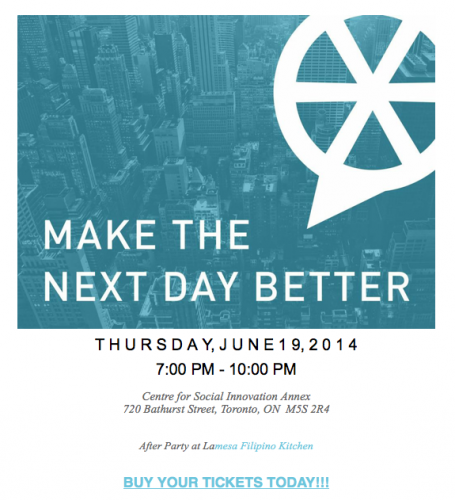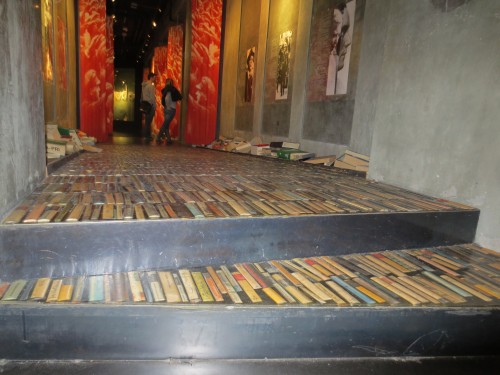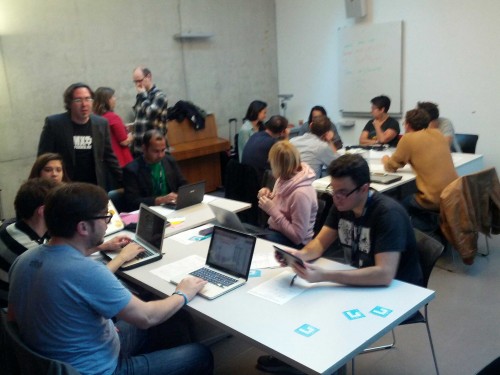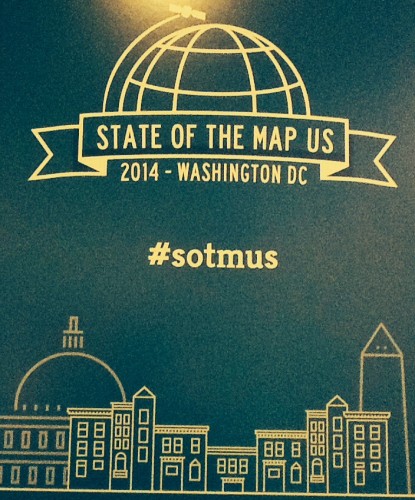We are polygamists. Seriously, do you belong to one community? I like to think that a number of us are all involved in many communities both locally and globally. For community leaders, we know that this journey is both beautiful and hard. We want to encourage active participation in a collaborative method.
Community Management – my top 5 go to list

Over the past months, I’ve had a few conversations with folks just starting out in Community Management, especially HFOSS Communities. They all ask for resources on how to get oriented and meet others. There are Community Manager Linked In groups and regional organizations. This is my top 5 go to list for community managers:
1. Community Roundtable
While the audience is focused on corporate Community Managers, they provide rich data with regular Roundtable newsletter and annual community survey.
2. Community Leadership Summit
OSCON is the largest OS conference in the world. The Community Leadership Summit happens right before it. I find that HFOSS groups still get a ton of value. You can read our notes from last year.
3. The Art of Community
Jono’s book, The Art of Community, is fantastic.
4. Dave Eaves – Django talk
Community is negotiation. I tend to re-listen to Dave Eaves’ Django talk (video) at least once a year. There are books on negotiation, but he really nails the nuances of global open source community.
5.Opensource.com
There is a wealth of articles on here about community engagement and open source projects.
Tech 4 Good Organizers
I started a google group for folks who lead in HFOSS or Business (corporate social responsibility) who run tech 4 good events or communities. There are a number of groups out there, but I feel like there is a gap for leaders in Tech 4 Good. It is just getting started but you are welcome to join: https://groups.google.com/forum/#!forum/tech4goodorganizers. We are stronger if we learn and engage together.
How to analyze and build a community:
Another question I often get is how to activate community. People have a finite amount of time and energy. If you build spaces and interactions, they will stay. To me the basics of service design are core to building community. Do something that is relevant, build ‘With‘ the community not only ‘For‘ your goals, and plan for the community to change you and your organization.
Everyone has their own methods, but here is a list that I tend to share:
1. Collect Data
What is the current state? Do some interviews with stakeholders, ask questions, ask to talk with people who have left the community, survey and use the stats (website, newsletter, blog, social media).
2. Do analysis and decide future goals
Assess the community maturation model. Decide what the community wants and build goals of organization with that in mind. Here are some tools to help: Diytoolkit and Reboot’s Service Design model.
3. Test ideas with the community. Prepare to adjust.
4. Start small for wins for engagement. You will know what these are because you’ve done your research and tested out the spirit of the community. Think in the frame of Dan Pink’s model of Drive: Autonomy, mastery and purpose.
5. Prioritize, co-brain and deliver
6. Delegate and co-lead
7. Global means that translation is part of your plan, not an afterthought.
(ps. Foxclocks and timeanddate are your event planning friends.)
Some Tech 4 Good Issues
I’ve been in a number of communities both volunteer and paid. These are some of the harder issues to consider. While I don’t have the answers, I think it is appropriate to share and see if we can learn to solve and adapt together.
- How do we get to the next 1000 active community members. We know that the potential of small asks, big tasks is the key to community engagement. Communities like Zooiverse are schooling us on capacity, value and relevancy. How can we learn from them? (See Patrick Meier’s post on this topic)
- Early adopters can sometimes scare, deter new strangers by their sense of ownership and entitlement. Building a community that serves all the types of community members, cultures, languages and, personality styles, is a tall order. But, it is necessary.I have been thinking of ways to build to the silent doers. (see my post on the Welcome Committee)
- I think the social economy/social entrepreneurship model of NGOs builds accountability and transparency. Maybe it is my tech start up background, but I think that NGOs need to consider shaping to serve citizens with feedback loops and new funding models. In the last while, there have been a number of coalition and partnership funding programmes. This gives me tremendous hope in the adage that we are stronger when we build together.
- There is an uncomfortable digital scramble for open territory which sometimes goes against the values of open and global collaboration. While it may be naive, I think there is enough digital space for everyone. This is not a gold rush. Being open and sharing will win. I trust in the Economic Impact of Open Source (Business model) transferring to other open communities. (see my presentation: Coining Global(especially the notes))
- Building duplicate efforts hurts the opportunity to build with each other. Remember: Community is a beautiful gift in which people share their intellect, time and energy. We owe these folks so much as their interactions and contributions are a gift. The key is that they add value and that we, in return, reciprocate and thank them.
What are some of the community building conundrums you have encountered? Solutions, Ideas?
(Photo: The Lumiere path in Montreal, Heather Leson, January 2014)






